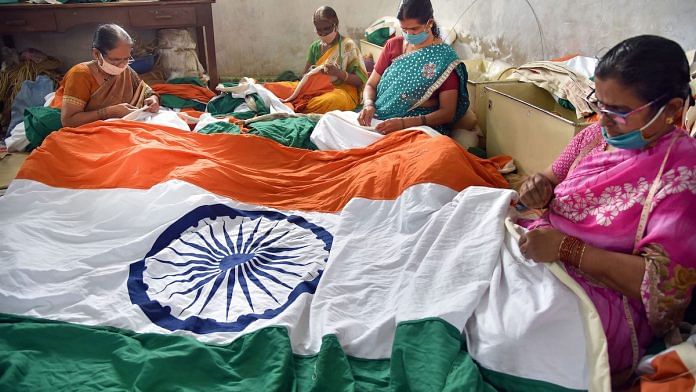The past year marked the birth of India’s second republic, led by the majority. It overcame the challenges of Article 370, Ram Mandir among others and entered a new era of challenges that this hopeful-superpower will have to face in the 21st century.
“Long years ago we made a tryst with destiny, and now the time comes when we shall redeem our pledge, not wholly or in full measure, but very substantially. At the stroke of the midnight hour, when the world sleeps, India will awake to life and freedom.”
Seventy three years ago, India’s first prime minister Jawaharlal Nehru declared this from the Red Fort, marking the birth of India’s first republic, after partition. This division brought in a set of challenges and questions that our country had to think about — Is Pakistan for Muslims, Is India for Hindus? Does annexation of Kashmir mean it’s a part of India?
Over the course of time, India solved some of these issues and also created some new ones. On 5 August 2019 and in the year 2020 respectively, with the revocation of Article 370 and construction of the Ram temple, our country showed the world who it will lead by into the 21st century — the majority.
The old definition of secularism is now dead, which said the majority has to give over its rights for the minority to feel secured. The majority had to give over its right on Kashmir, rightly earned by the blood of thousands of Indian soldiers who died in order to protect its sovereignty from the invaders, just because the minority should not feel insecure. This old definition was wrought into our minds by the elitist-socialists who believed in order for us to succeed we have to give over our beliefs and should unify under the flag of this pseudo-secularism.
The landslide victory of a political party in 2014 and 2019 has shown the world the rejection of this kind of secularism by people of India.
We more or less have gotten over the challenges we faced during the course of our first republic. The birth of our second republic will bring in a new set of challenges we need to face collectively into the 21st century.
Some of these lessons include:
Protection of minorities
The majority-led mindset does not mean that India can ignore its minority and just focus on the welfare of the majority. This will in sometime result in a rebellion, which this new republic cannot handle.
This country cannot succeed by just ignoring its minority population which is as big as the Russian population. We will need to find ways to include our minorities into the rivers of development and progress. The change must come from the bottom. Unless we Indians believe we are equal and stop voting on the grounds of our caste and religion, our leaders won’t stop polarising us.
Living in a divided world
The world is divided into two fractions — one is led by the old superpower, the US, while the other by the rising superpower China. India has to give up on its old belief that it too is as powerful as these superpowers and must not lead the world into another fraction as it did with the creation of the Non-Aligned Movement during the Cold War.
A united India has to find way to survive and thrive in this divided world.
Improving education, not literacy
The main source of the majority of problems our country faces can be traced back to our collective lack of education.
Yes, it’s true that in the last 70 years, most of us have learned to at least write signatures instead of using our thumbs but is this all that our country needs? We should prioritise education before everything else in this new century that we are supposed to lead for the world. Indians should form their own mindsets and ways of thinking that will challenge the greatest of the greats of the world.
Government should not do business
Why should BSNL be there in the Jio-Airtel club? Why should Air India be there in the Indigo-Spicejet club?
The government should have known by now that it has been unsuccessful with its businesses. Not getting involved in the business sector should be the top agenda of every government. With that said, we should prioritise ease of doing business and promote entrepreneurship.
Protection of freedom
This is one of the most un-thought issues currently faced by our country. No matter how much we criticise Trump’s America, but we have to appreciate that no matter who you are you can criticise the most powerful man in the US.
This should also be the case in our country and the government should compensate the speakers with their ears, not through a continuous attack from their agencies. Also, the government should not be there to tell us what is right and wrong.
Rahul Kulkarni is a student of Vishwakarma Institute of Information Technology, Pune



